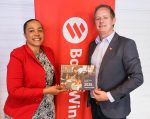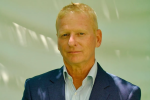President Hage Geingob has reiterated that Namibia’s classification as an upper middle-income country presents challenges with regards to mobilizing resources to finance development goals further highlighting that the formulae used for this determination is flawed.
Geingob was speaking at the 77th session of the UN General Assembly (UNGA) last week.
“As I have been saying, taking our GDP and dividing it by our small population, thus deriving a high per capita income is without doubt a flawed formula that requires urgent consideration. The formula does not take into account the vast income disparities between the wealthy whites and the poor blacks, which is a consequence of 100 years of colonialism and Apartheid occupation. However, I am pleased to hear that a number of developing and developed countries are in agreement with this unfair classification, which denies countries like Namibia access to soft loans and grants, which are necessary to fight inequality and to lift many out of poverty,” he said.
He further went on to say that global debt is at an unprecedented level and interest rates are rising, a reality which limits Namibia’s fiscal space.
“As we talk about our collective aspirations, we should remain acutely aware of the vulnerabilities facing developing countries. The choice of the theme for this Session “Solutions through solidarity, sustainability and science” calls on us to deal with the issues that affect us all. Therefore, I am confident that the unfair classification of countries like Namibia as upper middle-income countries will enjoy priority,” extended Geingob.
Geingob went on to reveal that at COP 27, Namibia plans to announce major developments in its ambitions to decarbonize global hard-to-abate sectors through the production of green hydrogen adding that the first Hydrogen-to-Power project in Africa is expected to be operational by 2024 in the town of Swakopmund, Namibia.
“This is an example of what is possible when we pull together in the same direction. Our ambitions are not only necessary to mitigate the ravaging impacts of climate change, but are also a critical component of our post-Covid-19 economic recovery. Therefore, Namibia remains ready to work with the international community to ensure the most optimal utilization of its natural resources to combat climate change.
“A just energy transition is about fair opportunities for developing nations to sustainably access natural endowments at their disposal. Namibia has recently discovered promising deposits of hydrocarbons and is exploring significant deposits of rare earth metals. As part of our goal to ensure sustainable utilization of our natural resources, I recently launched the Welwitschia Fund, our nation’s Sovereign Wealth Fund. The Fund is a demonstration of our commitment to fiscal prudence and sustainable resource management for current and future generations,” Geingob said.
He also told delegate that he was proud of the recent landing of the Google Equiano subsea cable which lends itself greatly to changing Namibia’s digital transformation landscape and narrowing the digital divide, in line with Namibia’s commitment to leverage the 4th Industrial Revolution.
“In Namibia, we have set up the Fourth Industrial Revolution Task Force, which recently made recommendations as to how Namibia can strengthen domestic capabilities to derive optimal gains from the 4th Industrial Revolution. In line with the recommendations of the Task Force, the Government is currently developing a consolidated national 4IR strategy to provide overarching direction and multi-sectoral planning. The strategy will prioritize education reform to close the 4IR skills gap, cybersecurity and the expansion of ICT infrastructure and services,” noted Geingob.
Lastly, he also spoke about education as a key catalyst being pursued by Namibia in its developmental agenda.
“Over the past few months, it has been encouraging to note the concerted efforts to shed a spotlight on Transforming Education and advancing SDG 4. Education is a sector that Namibia has consistently been prioritised through the allocation of resources (both human and financial) and the consistent prioritisation of policy development. In the context of the recently concluded Transformation of Education Summit, Namibia commits to transformative leadership, ensuring access to inclusive digital technologies and developing a strategy for innovative financing and resource mobilisaiton.
“In Namibia, the education sector receives the largest share of budgetary support, equivalent to 8% of GDP and almost a quarter of the total national budget. The Namibian Government offers free primary and secondary education, which demonstrates our commitment to prioritizing and expanding access to education for all,” said Geingob.










